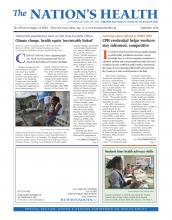Commonly used medications may be contributing to the increase in depression in the U.S.
In 2016, 6.7 percent of Americans experienced a major depressive episode, according to the Substance Abuse and Mental Health Services Administration. A study published in June in the Journal of the American Medical Association found that commonly used medications could contribute to that number. Over 200 prescription drugs list depression or suicide as potential side effects.
Thirty-seven percent of U.S. adults used medications with depression as a potential side effect between 2005 and 2014, with the simultaneous rate of depression reaching as high as 61 percent for some medications, the study showed. Use of prescription drugs with suicide listed as an adverse effect increased from 17 to 24 percent of adults in the same period. Such medications range from birth control to blood pressure medication.
Polypharmacy, the use of multiple medications at one time, is an increasing trend that may put patients at an even greater risk, according to the study. Researchers found that the use of two or more medications simultaneously correlates with increased estimated prevalence of depression. The more drugs a person took, the higher her or his chance was for developing depression. Estimated prevalence of depression remained about the same for people using two or more medications without depression as a potential side effect.
The study noted that many of the drugs with depression risks are also available in over-the-counter forms. While prescription drugs list potential side effects as warnings, the study stated that over-the-counter drug labels are much less exhaustive. As a result, patients taking these drugs are likely unaware of the risk, researchers warned.
For both prescription drugs and over-the-counter drugs, it is imperative for health care providers to communicate the risk with their patients, said lead author Dima Mazen Qato, PharmD, PhD, MPH. She suggested including depression from multiple drugs as a potential interaction in drug safety software and considering medication history when screening for and treating depression.
For more information, visit https://jamanetwork.com/journals/jama/article-abstract/2684607.
- Copyright The Nation’s Health, American Public Health Association









